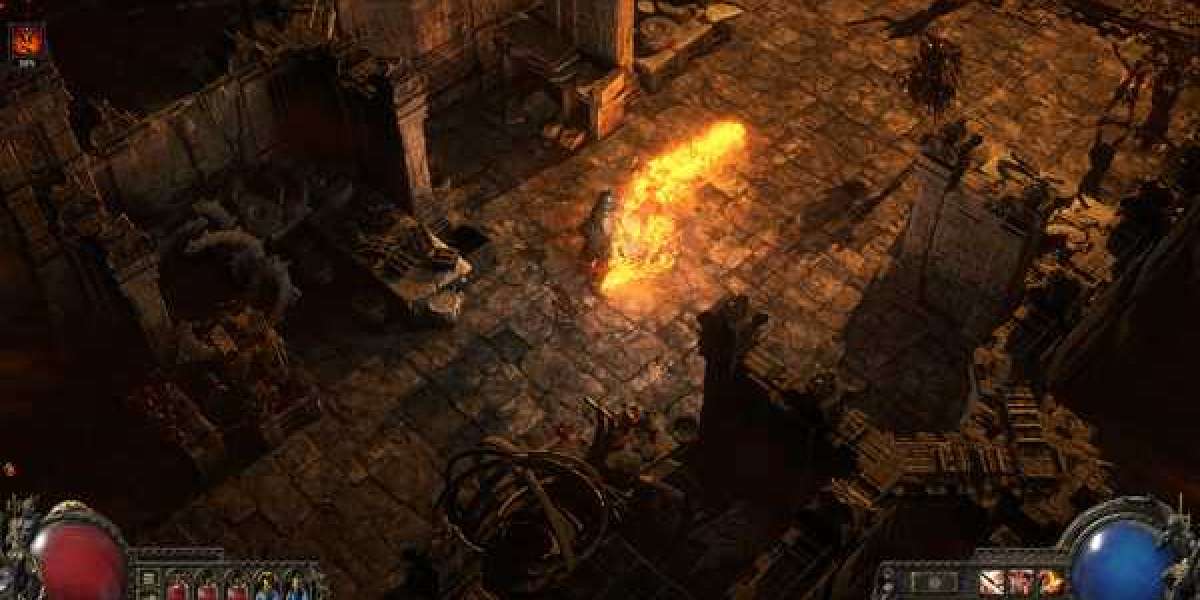Diablo 2 Runes , together with Runewords, are among the best innovations of Diablo II in its loot game mechanics. They were added to the game during the release of the expansion Lord of Destruction. Until today, there are no similar mechanics or as interesting that you can find in other loot-based action RPG.
Runes are items that you can socket on armor or weapons, to which they add a special bonus attribute. However, when you place a certain set of runes based on a recipe, that is when the magic happens. In addition to giving each rune's bonus attribute, they transform the socketable item into something else more powerful than the sum of each rune. They produce a synergy and create a new item, called a runeword.
Diablo II Runes
Runes are a kind of item that you can encounter anywhere in Diablo 2: Resurrected, no matter if you are playing on Normal, Nightmare or Hell difficulty. However, some places are more effective for farming runes than others, and we will tell you more about them later in this guide.
Runes can be placed into socketed items to enhance them with different benefits and attributes. However, the best way to use runes is to combine them in a certain unique sequence to create a runeword. A runeword is a special combination that gives certain properties to your item.
Runes also have another use, they can also be used in the Horadric Cube and combined with gear to make repairs. If you're struggling for gold and cannot afford a vendor repair, this can be a great substitute. To do this, you need to put a Ral rune and your broken gear in the Horadric Cube and transmute them. This will fix your gear and make it usable again.
Runes can also be upgraded in the Horadric Cube by combining three runes of the same type to get one rune of the next higher level. This is often called “cubing up”. For example, you can put three El runes in the Horadric Cube and transmute them to get one Eld rune. This way, you can get higher-level runes without waiting for them to drop. You can find this recipe and other useful combinations below.
Farming Runes in Diablo II: Resurrected Patch 2.7 Ladder Season 4
All mobs of the appropriate level can drop Runes, although it's a rare drop chance. There are only a couple types of monsters/events that have a better chance of yielding Runes, and it's difficult to target them by anything other than "the higher the better". It's further complicated by the fact that Magic Find does nothing toward increasing your chances of getting Rune drops.
There are four major sources for farming runes in Diablo 2: Remastered. Three of them involve quests:
Forgotten Tower (Act I): The Countess
The quest doesn't reward Runes, but your quarry, the The Countess, has a high chance of dropping Runes. She is found in the fifth level of the Forgotten Tower, Black Marsh.
The Countess drops up to Amn (#11, cLvl 25) on Normal, up to Io (#16, cLvl 35) on Nightmare, and up to Lo (#28, cLvl 59) on Hell. Some Rune drops are rare on certain levels; these are noted in the table below. She will drop up to 6 runes per kill, though usually she drops only 2-3.
If you are killing The Countess for the first time, be careful not to pull her out of her room. If she goes too far, her chest will not open. This quest is repeatable on new games (though you only get the chest the first time) and you can kill her repeatedly for rune drops.
Some players in the original D2 observed that you get higher-level runes if you put off doing this quest for the first time until you are on Nightmare or Hell levels.
Rescue on Mount Arreat (Act V)
Rescue on Mount Arreat is a quest early in Act V. This involves freeing 15 Barbarian Warriors at the behest of a Barbarian captain named Qual-Kehk.
This quest always reward up to three runes: Tal (#7), Ral (#8), and Ort (#9). While not high-level runes, they can be useful for Horadric Cube combines to create higher level runes.
In addition, you can combine these into the runeword RalOrtTal (Ancient's Pledge), which can be applied to shields, Paladin shields, or shrunken head offhands with 3 sockets. The three runes award +35% to Fire, Lightning, and Poison resist, but the Runeword also gives +50% enhanced defense, +43% Cold resist, 10% damage goes to Mana, and another +13% to Fire, Lightning, and Poison Resist (total of 48% resists on these three properties).
Chests and Containers
Runes also have a low chance to drop from Good treasure chests. The chart below shows the minimum Act and Difficulty required for Good quality chests to drop certain runes. A rune that can drop from an Act 2 (Normal) Good chest can also drop from any chest in any higher act or difficulty; it's just that higher runes cannot drop from chests at a lower act/difficulty.
A good place to get a lot of chests is the Kurast outdoor zones, such as Lower Kurast in Act 3. There are often chests near the campfires.
Rune Farming Chart
This chart shows the required levels for farming these quests, plus any additional quests or circumstances where you might get Runes.
Runes are only available for players who are using the full Expansion mode of D2:R, which includes the Lord of Destruction (LoD) expansion. They are not usable for Classic players who choose not to use the LoD expansion. This guide covers the basics about Runes, including how to farm it. You can Buy D2R Ladder Items , runes, runewords, amulets, unique weapons and armor, set items, and much more at low prices and instant delivery at https://www.igmeet.com/D2r-ladder-Items

